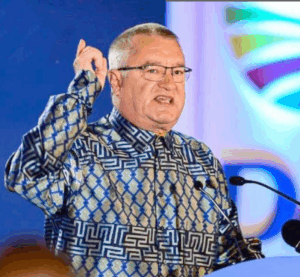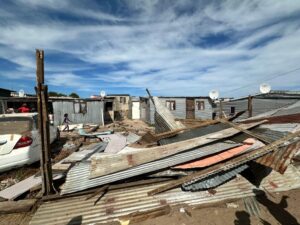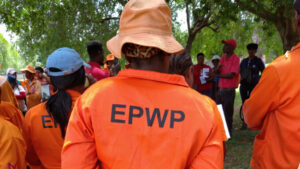The Democratic Alliance (DA) recognizes the critical challenge of informal housing in KwaZulu-Natal (KZN). Many of our people are living in inadequate and overcrowded conditions in informal settlements, often without access to essential services such as water, sanitation, electricity, or adequate roads.
The DA believes that informal housing is a fundamental question of human dignity, safety, and opportunity.
The KZN Elimination and Prevention of Re-Emergence of Slums Act is an important step toward addressing the severe housing challenges faced by communities across our province. The persistent growth of informal settlements is a direct consequence of inadequate planning, poor governance, and insufficient action by the state to address housing and urbanization issues.
This Act presents a significant opportunity to combat the dire conditions under which many are forced to live. The elimination of slums requires a comprehensive and multi-dimensional approach that prioritizes the dignity, safety, and well-being of all individuals.
Housing issues in KZN are complex and multifaceted, involving a range of social, economic, and political factors. KZN has a significant shortage of affordable housing, particularly for low and middle-income households. The demand for housing exceeds supply, with millions of our people living in informal settlements or overcrowded conditions with inadequate basic infrastructure.
While KZN’s Department of Human Settlements has provided housing, there remains a significant backlog in delivery. The reality is that many people cannot afford to buy homes due to high interest rates, insufficient income, and the rising cost of living. The gap between the supply of low-cost housing and the number of people who need it remains large.
High levels of unemployment and poverty, particularly in our rural areas, worsen the housing crisis while housing projects often fail to provide even the most basic of services. In many cases, new developments are built without sufficient planning for the necessary utilities, further marginalizing our poorest communities. This while corruption and mismanagement within the department have hampered efforts to deliver affordable housing. Funds intended for housing developments have often been diverted, leading to delays, unfinished projects, or substandard construction.
South Africa and KZN continue to face economic challenges, including high unemployment, slow growth, and rising national debt. As a result, government spending has been tightly constrained. This has seen housing, which requires substantial investment, having to compete with other priorities such as education, healthcare, and infrastructure. Insufficient government funding for housing programmes has also led to a reliance on private developers and limited the scope and scale of housing initiatives.
The DA in the GPU is committed to finding sustainable solutions to the housing crisis by prioritizing the following;
- Upgrading Informal Settlements: The DA supports a comprehensive approach to upgrading informal settlements, not simply dismantling them. This means investing in infrastructure and services that our communities need to thrive. Upgrading should include access to clean water, sanitation, electricity, and safe, stable housing that is fit for human habitation
- Accelerating Housing Delivery: The DA calls for swift and efficient delivery of well-constructed, affordable homes to KZN’s many people who are still waiting for decent housing. The department must fast-track the construction of new homes and work with the private sector to deliver housing
- Preventing New Informal Settlements: While addressing the existing housing crisis, the DA advocates for proactive measures to prevent the emergence of new informal settlements. This includes proper urban planning, zoning, and the creation of affordable housing options in urban and peri-urban areas, where the demand for housing is greatest
- Empowering Communities: The DA believes in empowering communities to take part in the process of improving their living conditions. Local residents should be consulted and involved in planning and upgrading of their areas, ensuring that their needs and aspirations are central to the solutions provided
- Sustainable and Inclusive Solutions: Beyond the provision of basic shelter, the DA advocates for the creation of sustainable communities. This involves not only the provision of housing but also the creation of economic opportunities, access to education, healthcare, and transport, ensuring that all residents can prosper and improve their quality of life and;
- Government Accountability: The DA insists that government be held accountable for its failure to deliver on housing promises. This includes ensuring that public funds are used effectively, that projects are properly managed, and that corruption and mismanagement do not undermine the efforts to resolve the housing crisis.
The gap between housing legislation and implementation in South Africa is driven by a combination of poor governance, corruption, insufficient funding, weak institutional capacity, land reform challenges, and political instability. Despite the existence of strong legal frameworks and policies aimed at addressing housing needs, these issues undermine the successful execution of housing programmes.
Closing this gap requires strengthening institutions, ensuring better coordination between different levels of government, improving transparency, and increasing investment in affordable housing. Additionally, addressing socio-economic barriers such as poverty, unemployment, and access to credit will be crucial in making the vision of adequate housing for all a reality.
Despite the majority of housing projects being implemented at local government level, many municipalities lack the capacity to execute housing policies effectively. Local governments often struggle with limited skilled staff, inadequate infrastructure, and financial constraints. This leads to inefficiencies in project implementation, delays in housing delivery, and poor-quality housing.
While national government sets the legislative framework for housing, local municipalities are responsible for delivery. However, there is often a lack of coordination between national, provincial, and local governments, leading to misalignment in policy priorities, resource allocation, and implementation strategies. This results in the fragmentation of efforts and delays in service delivery.
Providing housing to the poor is a critical issue worldwide, and finding innovative, sustainable, and scalable solutions is crucial. The current way of thinking and doing has not yielded results. KZN needs out-of-the-box solutions to its housing issue. It needs innovative ideas including;
- Modular or prefabricated housing units which are quick to assemble, cost-effective, and scalable. These can be made from eco-friendly, locally sourced materials such as compressed earth blocks, bamboo, or recycled plastics. Efforts must also be made to repurpose vacant or abandoned buildings as affordable housing
- Building small, affordable homes that maximize the use of limited space and resources. These homes are designed with functionality and sustainability in mind
- Empowering low-income communities to build their own homes through skill training, materials assistance, microfinance and offering housing vouchers or rent-to-own schemes that allow low-income families to gradually transition to homeownership
- Integrating housing and urban farming into one structure, where people live above or alongside agriculture, creating self-sustaining, green communities
- Developing mobile homes that are easy to transport and set up, providing temporary or permanent housing solutions in different locations and;
- Creating eco-villages where housing is integrated with renewable energy, water management systems, and sustainable building materials.
These ideas aim to balance affordability, sustainability, and scalability to provide long-term solutions for the housing needs of low-income populations. Implementing them successfully requires cooperation between governments, the private sector, non-profits organisations and communities.
The backlog in issuing title deeds is a result of a combination of historical, administrative, legal, financial, and political factors. Resolving this backlog requires a concerted effort from all levels of government and collaboration with relevant stakeholders.
The DA fully supports any initiative aimed at improving the living conditions of KZN’s vulnerable communities and will continue to hold the government of provincial unity (GPU) accountable to ensure that the promised benefits of this Act are realized. The elimination of slums is not just about providing housing – it is about restoring dignity, creating sustainable livelihoods, and ensuring that every person has access to a safe and secure environment.
Solving the issue of informal housing requires not just building houses, but creating integrated, vibrant communities that offer a better life for all. Housing policies that prioritize the needs of our most vulnerable populations, provide long-term solutions, which support economic growth is what is needed.
Access to quality housing is not just a matter of shelter; it is a critical foundation for achieving social and economic stability for all South Africans. Eliminating slums will not happen overnight, but with decisive action, better planning, and a focus on people-centred policies, KZN can provide all its citizens with the opportunity to live in dignity and safety.









